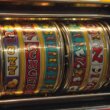- Key takeaway one: Minnesota's strict anti-gambling stance has significantly evolved over the past half-century, leading to a diverse gambling landscape today.
- Key takeaway two: A landmark tax case involving the Bryan family and the Leech Lake Band of Ojibwe in the 1970s paved the way for casino gambling on Native American reservations nationwide.
- Key takeaway three: Recent years have seen the push towards legalizing sports betting, reflecting ongoing debates and changes in gambling laws.
Minnesotans, buckle up! We're diving into the whirlwind history of gambling in the North Star State, a journey that's taken us from outright bans to a flourishing industry, with every twist and turn more intriguing than the last. It's a tale of change, challenge, and chance that's shaped the state's approach to gambling today.
From Prohibition to Possibility
Back in the day, Minnesota was not playing around when it came to gambling. The state's founders were staunchly against it, embedding a prohibition against lotteries right into the Constitution when Minnesota became a state in 1858. Bill Convery, director of research at the Minnesota Historical Society, tells us this was largely due to the strong religious values at the time, which viewed gambling as a no-go.
Despite these efforts, gambling was like that one guest you don't invite to the party but shows up anyway. It was happening, and often not in the up-and-up way you'd hope. Fast forward to 1945, and we see the first cracks in the anti-gambling facade with the legalization of bingo for charitable causes. It was a slow burn from there, with the state gradually loosening its tie on gambling regulations over the subsequent decades.
A Game-Changer: The Bryan Case
The real game-changer came from an unexpected quarter: a tax case involving Helen and Russell Bryan of the Leech Lake Band of Ojibwe in the early 1970s. Struggling with an unfair tax bill, their battle went all the way to the U.S. Supreme Court, which ruled in 1976 that the state couldn't mess with reservations on civil matters. This landmark decision not only gave tribes more autonomy but also set the stage for the casino boom on Native American lands across the country.
The Explosion of Casinos and Charitable Gambling
Fast forward to today, and Minnesota boasts 18 casinos, transforming the economic landscape for many Native communities. But casinos aren't the only game in town. The state has seen a proliferation of charitable gambling, with revenues supporting everything from military service honors to youth sports and environmental causes.
The Next Frontier: Sports Betting
The latest chapter in Minnesota's gambling saga revolves around sports betting. With the U.S. Supreme Court's 2018 decision opening the gates, the state is now wrestling with how to implement it. The big question? Who gets a piece of the pie—tribes, horse tracks, or perhaps a new player on the scene.
Wrapping It Up
Minnesota's journey from strict prohibition to a diverse gambling landscape reflects broader social and legal shifts. It's a story of adaptation, resistance, and, ultimately, acceptance, with each chapter adding depth to the state's complex relationship with gambling. Whether you're placing bets, pulling tabs, or just watching from the sidelines, one thing's for sure: gambling in Minnesota has come a long way, baby.
If gambling's got you in its grip a bit too tightly, help is at hand. Reach out to the Minnesota Department of Human Resources at 800-333-HOPE or visit GetGamblingHelp.com.
Got a burning question about Minnesota's quirks and mysteries? Dive into the Curious Minnesota project by the Star Tribune and ask away. Who knows? Your query might just be the next big story.




